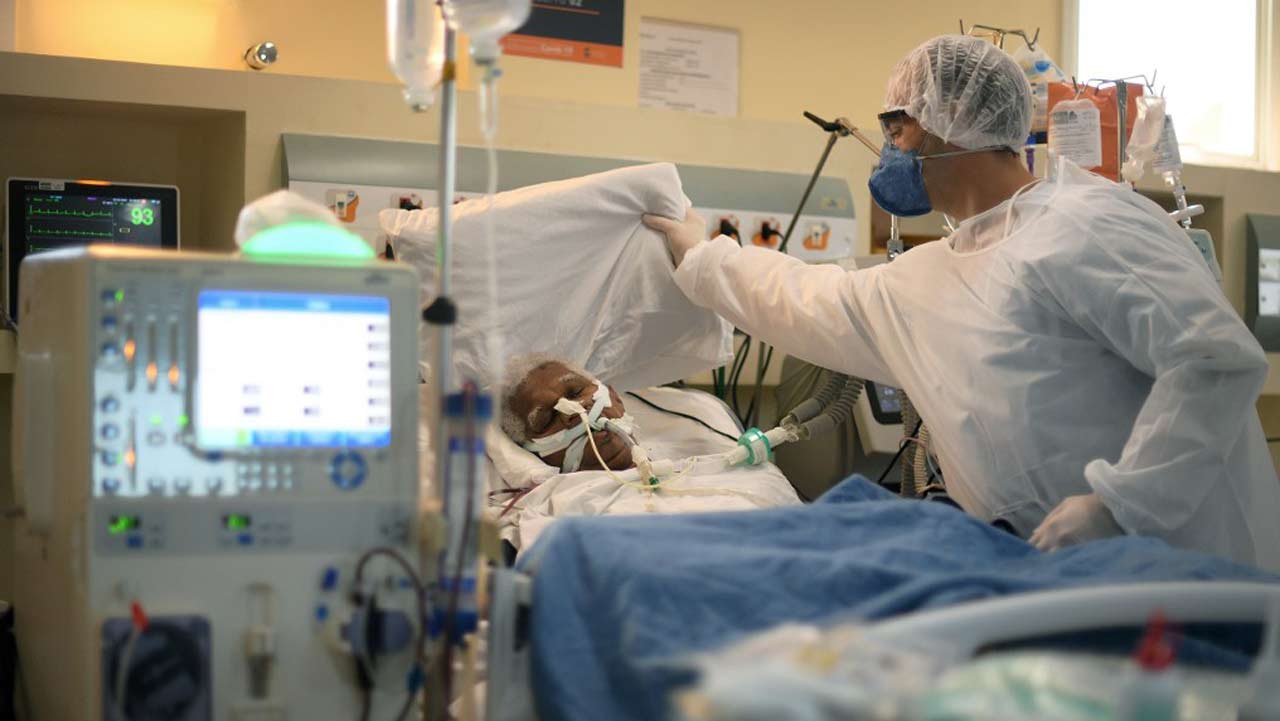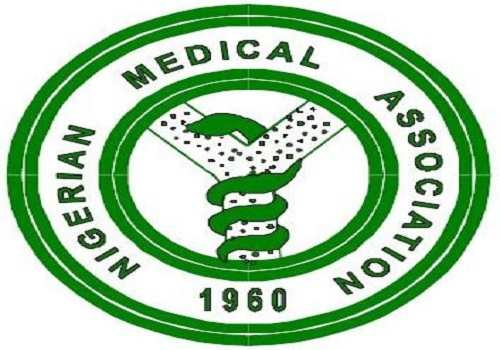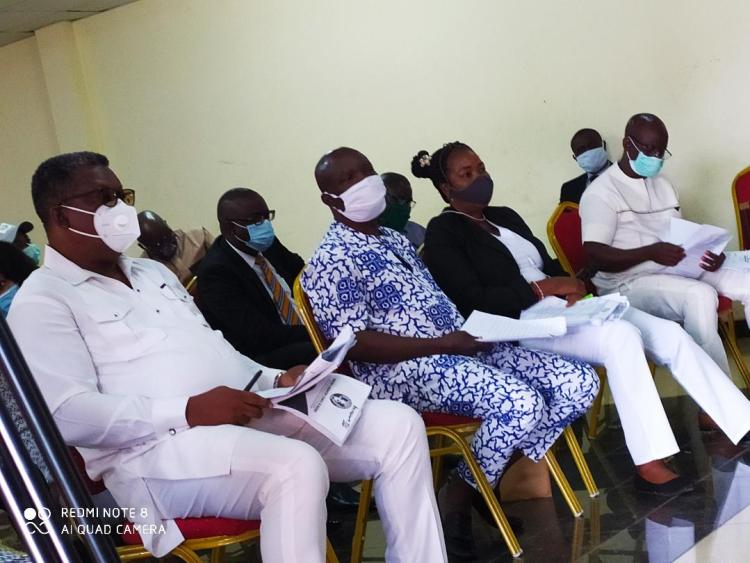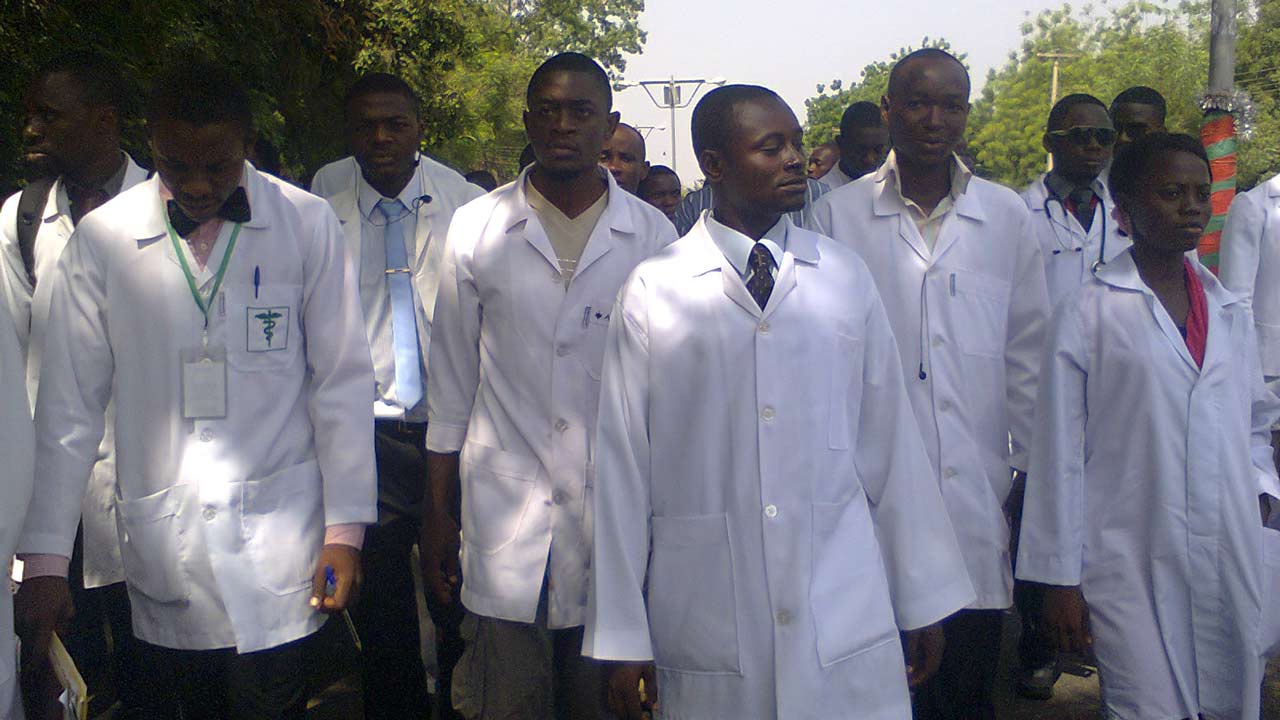It’s almost impossible to find a parent with a death wish for her child, right? But that was exactly what Nneka wished for her only daughter, diagnosed with Sickle Cell Anemia, who almost died from a severe crisis four years ago. She had lost another child to the same illness a few months back and was yet to recover from the trauma.
Nneka, (38) and Okechukwu (42) never knew they were carriers of the disease until the kids started coming. Now filled with hope, Nneka confided to me that though she believed in miracles, she has however come to terms that death might come knocking for her daughter at any time. Though she was cheery all though her narration, I could see through the pain she was nursing within her. I joined her in prayer for God’s mercy on Adaoha and the repose of the soul of her little son, Ugochukwu, with a resolve to share her story for both inspiration and awareness purposes. Sickle Cell Anemia is not an infliction by the witches from the village, it is a genetic disease of the blood which can be avoided with adequate information.

“Three years ago, I buried my baby boy, he was three years and eight months old. He died after a sickle cell crisis. As if this is not enough, I still have another child, my only girl, who carries the Sickle Cell Gene. If anything, the 13 years of my happy marriage has been crippled by the fear of when death will come knocking on the door. If I have another chance, I definitely will opt out of this mess. I will carefully verify all the little details about my partner before going ahead with the marriage. I pray that even my enemy should never experience what I am going through right now. For my husband and I, we have made our choice and we have to stick by it. We are putting all our hopes in the Lord for a miracle.
"I met my husband, Okechukwu in 2002 and got married in 2004 in a traditional wedding in the village. I was told that we would have been asked to take a test if we got married in the church. Our first child, Chukwuemeka was born in 2005, healthy and chubby. After him, came Adaoha, a girl in 2006, presumed healthy too until she was exactly six months old. She suddenly fell ill one afternoon, her temperature was very high and I also noticed that her legs were swollen. I treated her for fever and even scolded our housemaid for negligence. I had assumed that she must have fallen from somewhere which was responsible for her swollen legs. The following day, her condition had become worse, so I took her to Randle Avenue Hospital. After a series of tests, I was informed that my child was a Sickler ( a name for patients of Sickle Cell Anemia). I was referred to the Lagos University Teaching Hospital (LUTH). I cried all the way home because I didn’t believe the doctor.
How can my child be a Sickler? It is not true.
It is the handiwork of our enemies from the village, I had insisted. Various evil thoughts invaded my mind. The doctor told me more about the disease. He said it is sometimes referred to as a fever that destroys children’s bones and turn their blood into water. After further examinations, the doctors confirmed the earlier diagnosis carried out at Randle.
We were given directions on how to deal with her situation. She was to be given a lot of liquid and orange juice, folic acid, and multivitamin tablets must be taken on a daily basis, while anti-malaria drugs should be administered weekly. She should have lots of rest, less strenuous work or play and when she attained school age, her teacher should be informed.
I became very unhappy and depressed. I wondered why I should be saddled with such a child. The financial cost and emotional pains that have gone into this dilemma are unimaginable. Though I didn’t want to have more children after Ada, Okechukwu and I became closer to God and he kept on urging that God will perform His miracles, more so, since Chukwuemeka was not born with the disease. So we had the third child, another boy, Uzo. He was born an AS and we were happy. Then, the fourth boy, Chidozie, our miracle baby carried no sick genes at all. By this time, we had become more relaxed and grateful to God for his kindness. There was only Ada to contend with and we were managing fine.
However, I was wrong. The fifth child, Ugochukwu, a boy, turned out a Sickler. We did not know until his first crisis as we never bothered to check his genotype. We just took it for granted that such a calamity could not befall us again. He did not survive his second crisis. It was all so sudden and both came at the heels of each other.
Ugo had developed a very high temperature at about 3.00am, so the next morning, I took him to Igbaja Health Center in Surulere. I was asked to give him a cold bath because of the high temperature but he collapsed in my arms while under the shower. He was quickly rushed to the doctor who rejected him and referred us to LUTH. On our arrival at the emergency unit of the hospital, they managed to squeeze some drops of blood out of him for examination, while they also passed drips of blood and water into his body. He was admitted for three days and my troubles became double.
Shortly after this, he had another attack which gave no warning signal. We’d had a wonderful evening before retiring to bed only to be woken up in the dead of the night by his whimpering. My husband and I took him to the hospital early the next day but unfortunately, there was no doctor to attend to us on time. When we finally saw the doctor, we were trying to explain Ugo’s condition when I noticed that he had slumped in his father’s arms. I drew my husband’s attention to the child, it seemed as if he had fainted and they made frantic efforts to revive him.
Then the doctor looked at me.
Nobody needed to say a word before I knew what had happened. I just slumped and passed out on the spot. I mourned and grieved for my baby. For over two weeks, I did not know whether I existed or not. I could not eat or feel anything. Though I had known all the while that his survival depended on divine intervention, I never guessed he would die just like that. I was fed up with life and wanted to die. When I think of all the troubles I’d gone through, the pregnancy, the child birth, watching over him growing, I would feel like God has been most unkind to me. No mother prays to bury her child with her own hands.

That was why I had wished that Adaobi should die too when she fell into a serious crisis which left everybody devastated a few months after Ugo’s death. It started during the day time, so we were able to go to the hospital immediately. She felt relieved and we returned home. However, the illness persisted for four weeks, defying all medications and attention I gave her. I became so sick and tired of the whole ordeal that one day, I abandoned her on her bed to die. She had not urinated or empty her bowels for three days then and her stomach had swollen up like a child suffering from Kwashiorkor. She could only moan and groan on her bed.
To my shame, all I could feel towards her was hatred and I wished she would die with her problems. When her father came back from the office that evening, he saw that I had refused to attend to her. He asked me why, I couldn’t help myself anymore, I just began shouting at him. “Why don’t you carry her and do something about it yourself. I am sick and tired of all these troubles. I don’t want her anymore. Why won’t she just die and leave me alone? You can have her if you want, I don’t want to have anything to do with her ever again,” I screamed at him.
Then I broke down and wept.
He only stared at me, not uttering a word. He went to Ada’s room, picked her up and they left for the hospital. I waited all night for them and couldn’t sleep. As soon as the day broke, I ran to the hospital to check them. On seeing me, Okechukwu asked, “what do you want here, I thought you have abandoned her for me”. I couldn’t reply, I just sat there beside him. I felt like asking him about her condition, but I couldn’t. I wanted to ask if she was dead or not but how could a mother ask such a question? I can’t say precisely for how long we sat there, not saying a word to each other. Then, a nurse came to call him and I followed them. My poor baby was laid in bed with an oxygen pump attached to her nose and mouth. They were also passing some drips into her body. I couldn’t cry, I just stared at her. By noon, she had started excreting her waste. They allowed us take her home the next day.
Ada was nine years old then, now she is 11, still frail looking, but gradually growing less sickly compared to when she was a little girl. Her physical development is not very good, but she is brilliant and pretty too. I still pray to God to forgive my outrageous behaviour that fateful day. Though I know that death is lurking around the corner somewhere, waiting to snatch her away at the slightest opportunity, I still pray to God to spare her life. I have another baby boy now who we named Ugochukwu again. He is eight months old and he is only a carrier. So, we have three AS boys, with our miracle AA son and lovely Ada.
You need to know Due to the emotional, physical and financial trauma sometimes encountered, it is advised to be informed of your genotype before major commitment. There are two predominant forms of Sickle cell disorders in Nigeria, SS and a slightly lesser form SC.
Here are some genotype and their right combination before going into a relationship
AA + AA = Good
AA+ AC = Good
AA + AS = Good
AA + SS = Good
AS + AS = Not good ( 25% chance each child born will have sickle cell gene, SS so not recommended at all)
AS +AC = Not good (25% chance each child born will have sickle cell gene, SC. Not advised)
AS + SS = Not good at all (75 percent chance that each child born will have sickle cell disorder
SS + SS = Bad (Don’t even think of trying this unless you plan on adoption all the way as all your children will have sickle cell)
Endeavour to go to more than one certified lab to confirm genotype as there have been cases of wrongful diagnostics which has led to family trauma and distrust.
Vanguard
ABUJA: Training Schedule for Basic Life Support BLS, Pediatric Advanced Life Support (PALS), Advanced Cardiovascular Life Support ACLS, First Aid, CPR, AED
PORTHARCOURT: Training Schedule for Basic Life Support BLS, Pediatric Advanced Life Support (PALS), Advanced Cardiovascular Life Support ACLS, First Aid, CPR, AED
LAGOS: Training Schedule for Basic Life Support BLS, Pediatric Advanced Life Support (PALS), Advanced Cardiovascular Life Support ACLS, First Aid, CPR, AED





